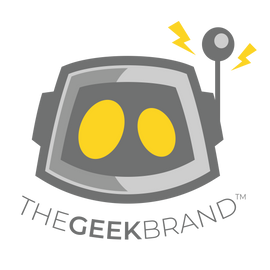The worlds of neuroscience, cybersecurity, and artificial intelligence (AI) may initially seem distant to the layman, but they are intertwined more closely than you think. As we leap forth into a digital future, these three realms are converging, bridging the gap between our brains, behavior, and technology. Welcome to the fascinating triptych of geek culture, where proficiency in one field often makes a crossover into the others.
How Neuroscience and AI are Shaping the Face of Medicine
Neuroscience, the scientific study of the nervous system, is redefining what we know about brains and behavior. Meanwhile, AI is learning to decode and understand the complex neurological data gathered by neuroscientists. The result? Faster diagnoses, more effective treatment options, and improved mental health outcomes.
In the world of drug development, AI is proving to be a game-changer. AI is able to predict how a drug will interact with the brain, increasing the speed of drug development and reducing the costs. This development is particularly beneficial to the mental health community, where new, effective treatments are urgently needed.
Strengthening Cybersecurity in the Age of Black Hat Hackers
In the world of cybersecurity, hackers often wear two hats: the white hat and the black hat. While white hat hackers use their skills to improve security, black hat hackers seek to exploit weaknesses and cause harm. In our increasingly digital world, the implications of a security breach can be devastating, extending beyond the digital realm to impact the physical world.
Countries like Russia and Ukraine have become hotbeds for these black hat hackers, utilizing malware to infiltrate and destabilize networks, and even national infrastructures. Nuclear cybersecurity has been thrust into the spotlight as a result, highlighting the need for robust, impregnable defense systems.
AI, Art, and Music—The Surprising Intersection
Is the creative world immune to the influence of AI? Not at all! In fact, AI is redefining both art and music. Microsoft’s AI can now generate music and even create impressive visual artworks. Open source AI platforms are allowing artists to experiment with machine learning, resulting in a whole new genre of art.
Elon Musk, CEO of SpaceX and Tesla, is no stranger to the AI world. In a big interview with Magazine-31.09, he discussed his ambitious plans to colonize Mars and the potential role of AI in this endeavor. Here on Earth, his company OpenAI has developed an AI called MuseNet that can compose symphonies in a multitude of styles.
Geek Culture: The Intertwining of Silicon Valley and Neuroscience
Geek culture is a treasure trove of information, where minds are continually blown by the rapidly evolving landscape of technology and neuroscience. As the world becomes increasingly digital, our understanding of the brain and how it interfaces with machines will undoubtedly shape the future.
From medicine to art, cybersecurity to space exploration, the convergence of neuroscience, AI, and cybersecurity has far-reaching implications for society. Whether we identify as geeks or not, we’re all passengers aboard this exhilarating journey into the future.




















